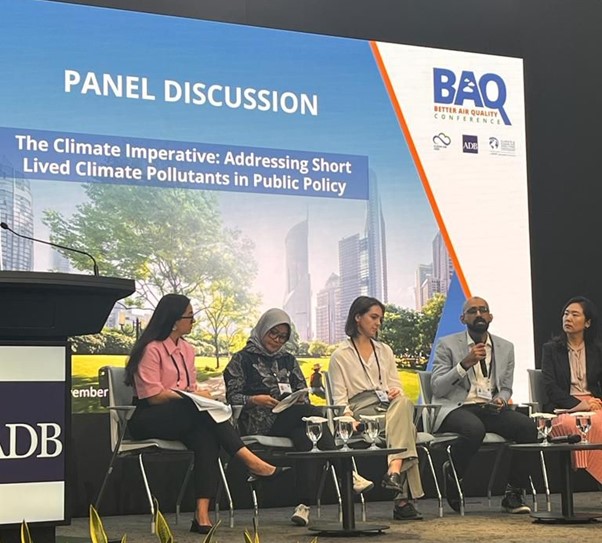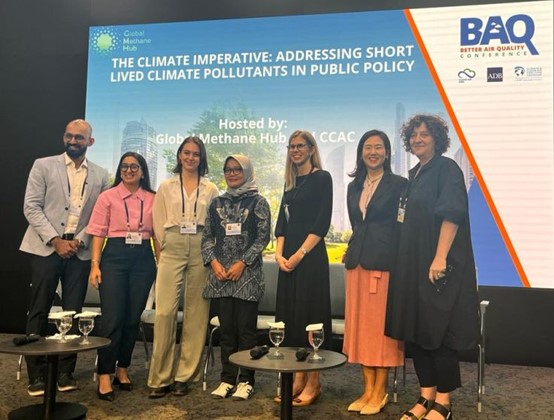The Climate Imperative: Integrating Short-lived Climate Pollutants (SLCPs) in Public Policy

Short-Lived Climate Pollutants (SLCPs) such as methane, black carbon, tropospheric ozone, and hydrofluorocarbons have contributed to up to 45% of net warming to date and have significant impacts on human health and the environment. Moreover, the 2022 Sixth Assessment Report of the Intergovernmental Panel on Climate Change (IPCC) highlighted the imperative to slash methane emissions by 2030 which has a global warming potential 80 times greater than carbon dioxide over a 20-year period. However, historically, SLCPs including methane have not been adequately addressed in policy making at the national and subnational level. By incorporating SLCPs mitigation in subnational plans (state and local climate action plans) and national policies (NDCs, carbon neutrality targets), governments can accelerate implementation of climate targets to stay on a pathway to 1.5C; attract greater investment to scale up action; and deliver immediate socio-economic benefits to our communities and enhance our food and agriculture systems.
To rise to this imperative, this conference brought together the experience and expertise of actors across subnational governments, civil society organisations and others that are working on integrating SLCPs in policy making across key economic sectors. Opportunities and challenges that come from ambition to implementation of these policies, and the role climate finance can play in unlocking solutions to slash SLCPs in our lifetimes for the people and the planet, were also discussed.
Objectives: (i) Understand the importance and benefits of SLCP mitigation on climate, health and the environment (ii) Learn about the opportunities and challenges of integrating SLCPs in public policy (iii) Understand how climate finance can unlock fast action on SLCP to collectively meet our 1.5C aligned climate goals and maintain thriving communities and ecosystems.

Vivek Chandran, Director, Climate Insights, Shakti Sustainable Energy Foundation, participated in the conference and spoke about how integrating SLCPs at the local level can help India meet its national goals on Swachh Bharat and how can climate finance play a role in enabling this at the local level.
Reflecting on a transformative dialogue at the BAQ Conference, Vivek Chandran underscored the crucial role of Public-Private Partnerships in advancing India’s climate action, clean air and sustainable developmental agendas. He cast a spotlight on the unique opportunity for Indian cities to harness the significant efforts of the MoHUA through pivotal initiatives like the Swachh Bharath Mission, AMRUT, and Smart Cities. “Through PPPs, we can combine private sector expertise and investment with public welfare to create a greener, more inclusive future,” he said, and also emphasised the urgent need for the creation of bankable PPP projects that synergise climate and developmental outcomes. He further highlighted Shakti’s initiative to develop a PPP Project Preparation Facility, designed to provide cities with the expertise needed for designing projects that are environmentally sound and also economically viable and said that these efforts are key to swiftly transforming our cities, enhancing the quality of life, while responding to challenges of climate change and air quality.
